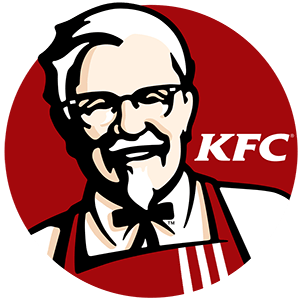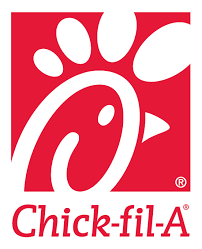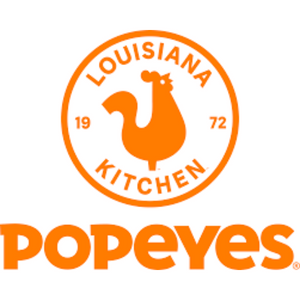KFC Franchise: Cost, Requirements, and More! – VettedBiz
Explore the world of KFC with our in-depth analysis! Discover what makes this iconic franchise a top choice for investors, from its secret recipe success to the costs and potential earnings. Ready to dive in? Read more here!
Table of Contents:
KFC, originally known as Kentucky Fried Chicken, is a globally recognized fast-food franchise founded by Colonel Harland Sanders in 1952. Colonel Sanders, with his secret blend of 11 herbs and spices, revolutionized the fried chicken industry. The restaurant brand adopted the abbreviated KFC in 1991. KFC is a major player in the fast-food sector, renowned for its unique recipes and quick-service model, making it a go-to choice for chicken lovers around the world. The franchise’s significance lies in its iconic branding, consistent quality, and ability to adapt to market trends while maintaining its classic appeal. Which makes KFC a popular restaurant franchise option for potential business owners.
KFC’s menu centers around its signature fried chicken, available in various forms such as Original Recipe, Extra Crispy, and Kentucky Grilled Chicken. Besides its legendary chicken, KFC offers a range of sides like mashed potatoes with gravy, coleslaw, biscuits, and corn on the cob. Their menu also includes sandwiches, wraps, and desserts, catering to diverse tastes and preferences. KFC’s core customer base comprises families, young adults, and fast-food enthusiasts seeking flavorful and convenient meals. The franchise appeals to a broad market, offering both dine-in and takeout options.
As of today, KFC boasts over 25,000 locations in more than 145 countries, serving millions of customers daily. This extensive global presence highlights KFC’s massive scale and ability to cater to diverse culinary preferences across different cultures. The brand’s ability to adapt its menu to local tastes while maintaining its core offerings has been key to its international success. In the U.S. alone, KFC has a strong footprint with thousands of outlets, making it a household name and a staple in the quick-service restaurant industry.
KFC provides robust support to its franchisees, ensuring they have the tools and knowledge needed for success. KFC offers a comprehensive training program for new franchisees that includes a mix of computer-based training and on-the-job training. This extensive training lasts for 9 weeks, ensuring franchisees are well-prepared for restaurant operations. Additionally, KFC provides classroom training that lasts for 1.5 days, covering essential operational procedures, quality control, customer service, and marketing strategies. Furthermore, KFC requires key operators to complete a specific training program to ensure they are equipped with the necessary skills and knowledge to manage the franchise effectively. Ongoing support includes access to KFC’s supply chain, marketing resources, and continuous training updates. The company’s commitment to innovation and franchisee success makes it an attractive investment opportunity for those looking to enter the fast-food industry.
KFC Franchise Insights
- KFC is a global icon given their secret recipe of 11 herbs and spices for their Original Recipe chicken has remained closely guarded since 1952, creating a unique and crave-worthy product that draws customers worldwide.
- Beyond their renowned fried chicken, KFC continuously introduces new menu items like the famous Double Down sandwich, showcasing their commitment to culinary innovation and satisfying diverse tastes.
- KFC has become ingrained in popular culture globally, adapting its menu to local tastes and traditions in over 145 countries, demonstrating its ability to expand globally while maintaining its core identity.
- Embracing technology and continuously innovating, KFC has launched campaigns and apps, like the KFC Colonel’s Club, offering exclusive deals and rewards to loyal customers, enhancing engagement and sales.
KFC Franchise Key Indicators
Growth YOY (%)
-3%
vs industry 0%
Total Investment
$1.05M-$3.77M
3-year Failure Rate
8%
vs industry 11%
Sales-to-Investment ratio
0.5:1
How much does it cost to open a KFC franchise?
Opening a KFC franchise involves a substantial investment that varies depending on factors like restaurant location, size, and local market conditions. The initial investment generally falls between approximately $1.05 million and $3.77 million. This covers expenses such as franchise fees, equipment, leasehold improvements, initial inventory, and other startup costs. Understanding these financial aspects is crucial for prospective franchisees looking to evaluate the profitability and financial commitment required to run a successful KFC.
Min & Max Investment
Opening a KFC franchise involves several key costs, which are outlined in Item 7 of the Franchise Disclosure Document (FDD). you can see a breakdown of the costs to open a KFC below from the most recent Item 7 below:
| Type of Expenditure | Minimum Investment | Maximum Investment |
|---|---|---|
| Background Check Fee | $575 per person | $2,500 per person |
| Deposit Fee | $20,000 | $20,000 |
| Option Fee | $25,000 | $25,000 |
| Training Expenses | $5,000 | $8,000 |
| Permits, Licenses & Security Deposits | $50,000 | $100,000 |
| Real Property | $300,000 | $1,000,000 |
| Building & Site Costs | $200,000 | $1,900,000 |
| Equipment, Signage, Décor, POS & Required Technology | $375,000 | $606,000 |
| Start-up Inventory | $10,000 | $10,000 |
| Grand Opening Expense | $5,000 | $5,000 |
| Insurance | $7,250 | $10,050 |
| Miscellaneous Costs | $5,000 | $10,000 |
| Additional Funds | $50,000 | $75,000 |
| Total | $1,052,825 | $3,771,550 |
Item 7 in the Franchise Disclosure Document (FDD) is the “Estimated Initial Investment” section. It outlines the total costs a franchisee can expect to incur when starting a franchise, including the initial franchise fee, equipment, inventory, real estate, and other startup expenses. This section is crucial because it provides potential franchisees with a detailed understanding of the financial commitment required, helping them assess affordability and plan their investment strategy effectively.
Required Capital
To open a franchise, the required capital involves both the initial investment costs and a net worth requirement set by KFC. Let’s take a closer look below:
- Initial Investment The total estimated initial investment ranges from $1.05 million and $3.77 million. This includes all the startup costs such as the franchise fee, real estate, construction, equipment, initial inventory, and additional funds for initial operating expenses. Assuming that you qualify, you should be able to obtain financing for roughly 80% of the total investment costs.
- Liquid Assets Requirement KFC typically requires franchisees to have a minimum of $750,000 in non-borrowed personal resources (liquid assets). This ensures the franchisee has sufficient funds to cover unforeseen expenses and maintain financial stability during the startup phase.
- Net Worth Requirement KFC also assesses the overall net worth of the franchisee. While the specific net worth requirement can vary, it is generally recommended that franchisees have a net worth of at least $1,500,000. This includes the value of assets like real estate, investments, and personal property, minus any liabilities.
How Much Does a KFC Franchise Owner Make?
Calculating the salary of a KFC franchise owner involves analyzing gross sales to determine total revenue, assessing operational efficiency to understand profit margins, and accounting for franchisor fees and additional expenses such as rent, utilities, and payroll. Effective management of these factors can significantly impact the profitability and financial success of a KFC franchise owner. This comprehensive financial analysis helps estimate net profits, from which the owner’s salary can be derived. A clear understanding of these factors ensures accurate salary projections and financial planning for sustainable business operations.
KFC Revenue & Gross Sales
When it comes to KFC franchises, revenue performance is a key factor for potential success. On average, franchises had a median gross sales of $1,321,309 in 2023, which is a 3% increase from 2022. These results highlight continued growth in gross sales with a quick service restaurant brand that has been around for decades. With smart management and operational efficiency, franchisees can capitalize on the brand’s legacy to drive profitability and achieve financial success.
Which key factors impact the average revenue performance of KFC franchisees?
Several factors contributed to the growth of U.S. KFC franchisee median gross sales revenue from 2022 to 2023. Market stability and a recovering economy increased consumer spending, benefiting the fast-food sector. Franchisee confidence was bolstered by KFC’s effective strategic initiatives, such as menu innovations and limited time offers, which kept the menu exciting and attracted more customers. The expansion of digital ordering channels, including mobile apps and third-party delivery services, made purchasing more convenient. Additionally, robust marketing campaigns and social media engagement-maintained brand visibility and drew a broader audience. Operational efficiencies, like streamlined kitchen processes and enhanced customer service, further improved the customer experience, contributing to higher sales. These factors combined to drive significant revenue growth for KFC franchisees.
KFC Franchise Operational Costs
When opening a KFC franchise, it’s crucial to account for the key primary ongoing operational costs to ensure smooth and profitable operations. Here are the main costs to consider:
- Food and Beverage The cost of purchasing chicken, sides, drinks, and other menu items.
- Labor Salaries and wages for employees, including benefits and payroll taxes.
- Rent Lease payments for the restaurant location.
- Utilities Costs for electricity, water, gas, and other essential services.
- Maintenance Regular upkeep of kitchen equipment, dining areas, and facilities.
- Supplies Purchase of packaging materials, cleaning supplies, and other necessary items.
- Insurance Coverage for property, liability, workers’ compensation, and other risks.
- Technology Expenses for point-of-sale systems, software, and other technology solutions.
Understanding these costs and planning accordingly will help you manage your KFC franchise effectively and maintain profitability.
KFC Franchise Fees
Owning a KFC franchise is different from owning an independent, non-franchised business. All franchises tend to charge ongoing fees that franchisees are required to pay to operate. Some of the fees that KFC requires their franchisees to pay are listed below:
- Royalty Fee This is a monthly fee paid to KFC, typically calculated as a percentage of gross sales. For KFC, this fee is usually 4% to 5% of Gross Revenue or a minimum of $1,440 per month, whichever is greater.
- National Co-Op Fee Franchisees are required to contribute to KFC’s national advertising fund. This contribution is generally 4.5% of Gross Revenue.
- Restaurant Operations Compliance Check This is a required evaluation process that includes food safety and brand standards compliance. Each re-evaluation may have associated costs.
These ongoing fees are essential to consider when planning the financial aspects of owning and operating a franchise. They cover the costs of brand support, advertising, and ongoing operational assistance provided by KFC.
KFC Franchise Earnings
The earnings of a KFC franchise owner can vary significantly based on a variety of factors including location, sales volume, operational efficiency, and cost management. However, on average, franchise owners can earn a substantial income.
KFC franchisees had a median gross sales of $1,321,309 in 2023. Based on this estimate, a KFC franchisee can expect to make roughly $198,000 in earnings per year, assuming the franchisee is an owner-operator. This means you can consider the salary of a franchise owner to be roughly $198,000 before interest, taxes, depreciation, and amortization (EBITDA). This translates to a roughly 15% operating profit margin.
For semi-absentee franchisees, earnings will be lower due to the additional costs of hiring a manager. This reflects the reduced profitability when the owner is not directly managing the operations.
How to Open a KFC Franchise
Becoming a KFC franchisee involves several key steps to ensure you are well-prepared for a successful business venture. Here’s an outline of the process:
- Initial Inquiry Begin by submitting an inquiry through the Vetted Biz franchise website or directly contacting a franchise specialist. This step initiates the communication and provides you with detailed information about the franchise opportunity.
- Application Submission Complete and submit the franchise application form. This allows KFC to review your background, experience, and initial interest in becoming a franchisee.
- Financial Review After your application is reviewed, you’ll undergo a financial review to assess your financial capability. This includes evaluating your net worth, liquid assets, and overall financial health to ensure you meet the franchise requirements.
- Interview and Approval If you pass the financial review, you’ll be invited to an interview with the franchise team. This is an opportunity for both parties to discuss expectations, ask questions, and determine if there is a mutual fit. Upon approval, you’ll receive a Franchise Disclosure Document (FDD) outlining all the details.
- Franchise Agreement Review and sign the Franchise Agreement, formalizing your commitment to becoming a KFC franchisee. Pay the initial franchise fee as outlined in the agreement.
- Training Attend KFC’s comprehensive training program, which includes both classroom and hands-on training. This program covers operational procedures, marketing strategies, customer service, and management practices to prepare you for running the franchise effectively.
- Location Development Work with KFC to identify and secure a suitable location for your franchise. This involves site selection, lease negotiations, and adhering to KFC’s design and construction guidelines. KFC will assist with the development and setup of your restaurant.
- Pre-Opening Preparation Complete final preparations such as hiring staff, installing equipment, and setting up inventory. KFC will provide support to ensure all aspects of your restaurant are ready for a successful launch.
- Opening Support Launch your KFC with the support of KFC’s opening team. This may include marketing assistance, operational guidance, and on-site support to ensure a smooth opening and initial operations.
- Ongoing Operations and Support Once your franchise is operational, continue to receive ongoing support from KFC. This includes regular visits from franchise consultants, access to marketing resources, and updates on operational best practices.
Following these steps will help you navigate the process of becoming a KFC franchisee, ensuring you are well-prepared for a successful and rewarding franchise operation.
Pros & Cons
Pros
Established Brand Recognition: KFC is a globally recognized brand with a strong market presence, which can attract customers and drive sales.
Proven Business Model: The KFC franchise system has a proven track record of success with a well-established business model and operational procedures.
Marketing and Advertising Resources: Franchisees benefit from KFC’s national marketing campaigns and advertising resources, which can enhance visibility and drive customer traffic.
Access to Supply Chain: KFC’s established supply chain ensures consistent quality and availability of ingredients, reducing supply chain challenges for franchisees.
Cons
High Initial Investment: The cost to open a KFC franchise can be substantial, including franchise fees, construction costs, and equipment expenses.
Ongoing Fees: Franchisees are required to pay ongoing royalty fees and contributions to national advertising funds, which can impact profitability.
Operational Restrictions: Franchisees must adhere to KFC’s strict operational guidelines and standards, which can limit flexibility and creativity in managing the business.
Intense Competition: The fast-food industry is highly competitive, with numerous players vying for market share, which can affect performance and profitability.
Dependence on Brand Performance: Franchisee success is closely tied to the overall performance of the KFC brand, and negative trends or brand issues can impact individual franchise profitability.






